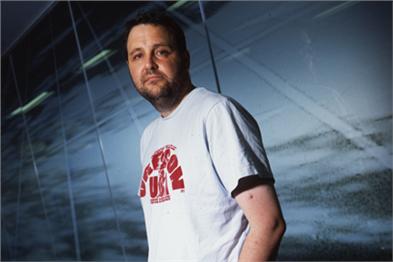The cloud was under construction at the time, so there were also diggers and dust, and huge cables were being laid to connect the cloud to the internet and to the nearby supplies of plentiful hydroelectric power.
Capturing the cloud was a tremendous coup for the local community. It brought jobs and 21st-century relevance. But at the time, no-one knew it was a cloud. We all just thought it was a data centre.
It's good to remind ourselves that all this ephemeral digital stuff has real physical consequences. If you get the chance to visit one of these enormous data centres - which tends not to be easy, as they're very careful about security - you really begin to understand the requirement in energy and atoms that goes into delivering your bits and bytes.
The famous spoof shot of Twitter's servers, showing how so many of them are devoted to Justin Bieber, makes the same point in a different way: the silliness of the world requires an enormous throughput of energy and effort. Very expert engineers and many gigaunits of power are required to make little birds dance on our phones.
This is worth remembering because when we dabble with digital, we're inclined to think that the technical problems are trivial. We assume that scaling problems can simply be solved with more boxes. Those of us with advertising backgrounds tend to assume that infrastructures just work - there are well-defined ways to play things out, to make things appear. That's not so true if you're building web services. You have to build your infrastructure too, or at least have a good sense of how big it's going to be before you start.
But we should really pay attention to the non-cloudiness of clouds, because our lives are going to get more technologically complex, not simpler. Our relationships with our customers are going to be mediated through these networks and clouds - they will be part of our delivery. And the language we use is important. Calling them clouds is a bad, unhelpful idea. It's just like saying unlimited bandwidth when we meant the opposite.
We're lucky enough to be living through a time chock-full of new ideas and new ways to engage with media and the world. As an industry, we're given some opportunities to define how those experiences work and are talked about. We're supposed to be good at making complex things simple - that's great, but we should avoid making them simple by making them wrong.


